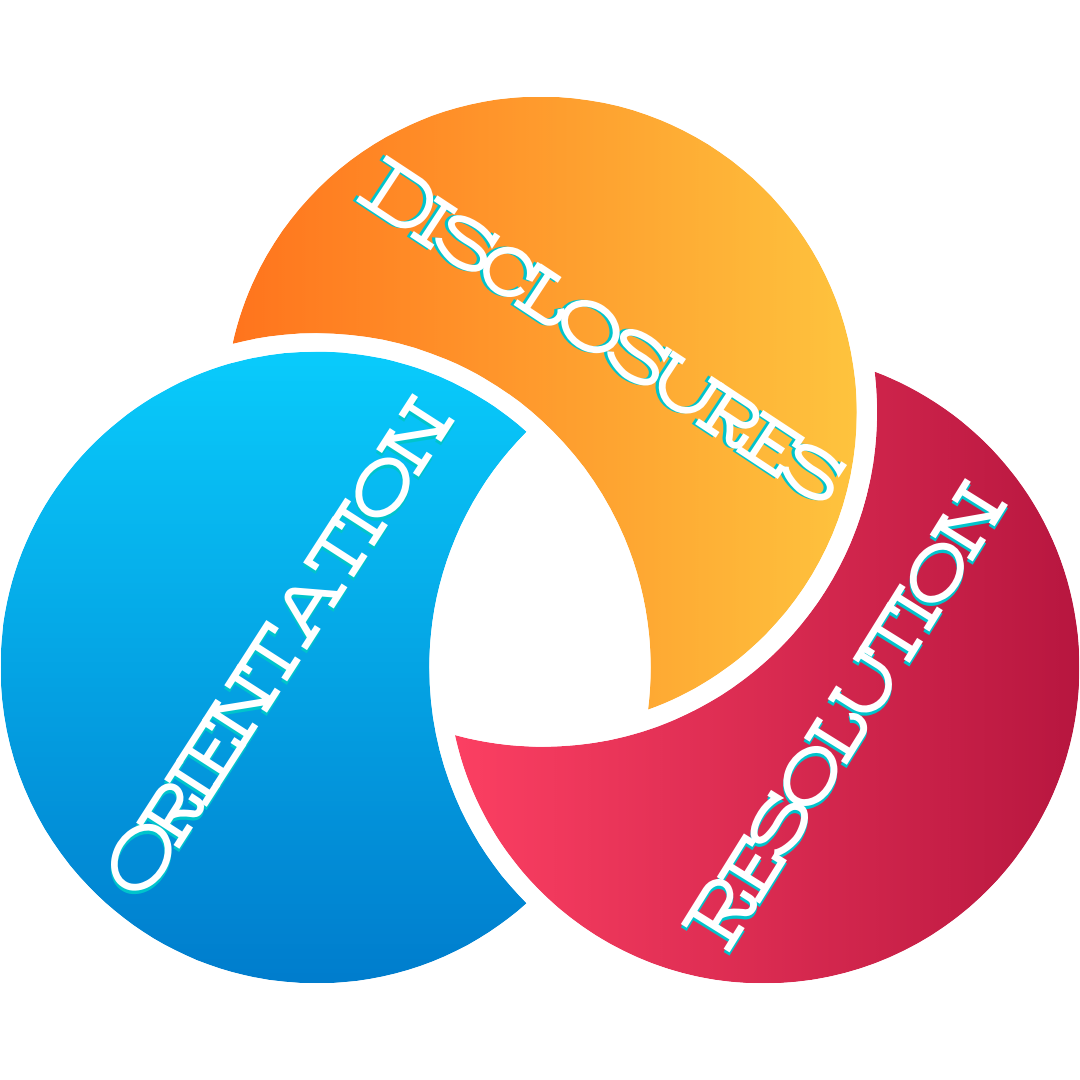What is Mediation in Divorce and How Does Mediation Work?
What is divorce mediation? How does it work? What is the process and what should you expect?
These are the questions we answer for you in this informative introductory guide to divorce mediation in California.
At the end of this guide, we provide you with links to related divorce mediation guides on a range of topics that will give you the knowledge you want to make smart choices.
Let's get started.
What is mediation in divorce?
Mediation in divorce is a process where the spouses communicate with an experienced family law attorney who does not represent either spouse. Instead, the divorce mediator helps both spouses reach resolution of the issues in their divorce.
There are those who call themselves divorce mediators and are not attorneys. We believe it is unwise to use a non-attorney mediator. An experienced family law attorney has the education and the knowledge necessary to guide the spouses to a reasonable and amicable resolution.
How does divorce mediation work?
Divorce mediation works differently from the normal process of hiring a lawyer.
During divorce mediation, each spouse may hire their own attorney to represent them. This is often wise so each spouse has independent representation and advice throughout the process.
Throughout the divorce mediation process, the mediator will help the spouses complete the necessary legal paperwork including but not limited to the divorce or legal separation petition, the response to the petition when that is necessary, each spouse's disclosures and ultimately the divorce or legal separation judgment.
Divorce mediation process
A divorce mediator usually interviews both spouses. The purpose of the interview is to better understand relevant facts about the marriage including the duration of the marriage, the separation date, the number and ages of the children, the nature and extent of assets and debts, each spouse's income, and their respective goals for the divorce mediation.
After the initial interview and the spouses hiring the divorce mediator (what we call, orientation), the process is usually as follows:
Step 1 - completing disclosures
The spouses will work together to complete the initial information packet which includes a list of all assets and debts, income and expenses, and additional information regarding the children so the mediator can help with child custody issues in addition to financial issues.
As part of the mediation process, the spouses communicate with the mediator on a regular basis if they need help with the initial paperwork. The mediator should not during the process speak with only one spouse. Both spouses should be in every substantive communication.
The information the spouses provide helps the mediator prepare each spouse's respective financial disclosures which is at the start of the mediation a preliminary declaration of disclosure and sometimes a preliminary and final declaration of disclosure.
A divorce mediator does not have to be involved in the paperwork preparation process if the spouses have their own independent attorneys helping with that.
Step 2 - Negotiations and settlement
The divorce mediation process transitions to negotiations between the spouses where the mediator helps the spouses reach an amicable settlement.
In cases that involve complex marital estates, such as those that include one or more businesses (which often require a business valuation), commercial or investment property, significant money in various financial accounts, or related issues, it is possible the mediator will recommend during the process the joint retention of one or more experts.
Experts may include a forensic accountant, a real property appraiser, a personal property appraiser, or others.
Ultimately, assuming the spouses negotiate with each other amicably and in good faith, the mediator helps the spouses draft a stipulated judgment.
That judgment, when signed by everyone, is then filed with the court and becomes a judgment of divorce or legal separation, depending on which route the spouses took.
What to expect in divorce mediation
This is what you should expect from the divorce mediation, from yourself during the mediation and from the divorce mediator.
What to expect from the divorce mediation
It is not a perfect process. No process is going to be perfect.
There will be times where you and your spouse will make forward progress toward resolution. There will be times where you may feel like it is going backwards due to disagreements.
The key is to trust the process unless it gets to a point where it is clear the divorce mediation will not lead to a reasonable resolution.
What to expect from yourself during divorce mediation
You are a human being. You are not a robot. There will be times where you will be emotional, sad, upset, or confused. All of these are normal emotions during a mediation process, and this is true for both spouses.
You should expect you will have questions that the divorce mediator will not be able to answer for you. This is especially true on complex marital estates. That is why it is important that you have your own independent attorney helping you in answering your questions.
Remember the mediator is not your advocate. The divorce mediator is not going to argue your position or that of your spouse.
You should expect to be cooperative, collaborative and honest throughout the process. If you are walking into the divorce mediation process with any attitude other than what we just wrote, divorce mediation is probably not for you. If your spouse is uncooperative, high conflict or dishonest, divorce mediation is likely a waste of time.
What to expect from your divorce mediator
Now here, I am assuming that your divorce mediator is an experienced family law attorney.
You should expect the divorce mediator to be calm throughout the process. Effective divorce mediators do not get caught up in the emotions of a divorce or legal separation.
You should expect the divorce mediator has a knowledge of the law and the application of the facts to the law. That means the divorce mediator should be able to answer questions regarding how the law views certain facts and issues in your case.
However, the law is not always black-and-white. The divorce mediator can let you know where there are gray areas and how the law may interpret a set of facts.
If the divorce mediator also has significant experience in divorce litigation, like those at our family law firm do, mediators can also provide some insight into how the process may go if you and your spouse are unable to resolve the matter in mediation.
This is especially helpful because it may be a preview of what may happen if divorce mediation fails. While nobody has a crystal ball and cannot predict the future, that valuable litigation experience our divorce mediators have help you better understand the alternative so you may find divorce mediation and compromising on the issues is in everyone's best interest on some or all of the issues.
You should expect your divorce mediator will be objective throughout the process. This goes back to the fact that a divorce mediator is not an advocate for either party. Objectivity is a big part of this process.
More divorce meditation guides for California spouses
Our guides on California divorce mediation walk you through the process from start to finish.
You will learn how long divorce mediation takes, tips on how to make mediation effective for you, the potential cost of divorce mediation and so much more. Below are links to our guides on divorce mediation.
Our family law firm offers divorce mediation throughout the State of California.






